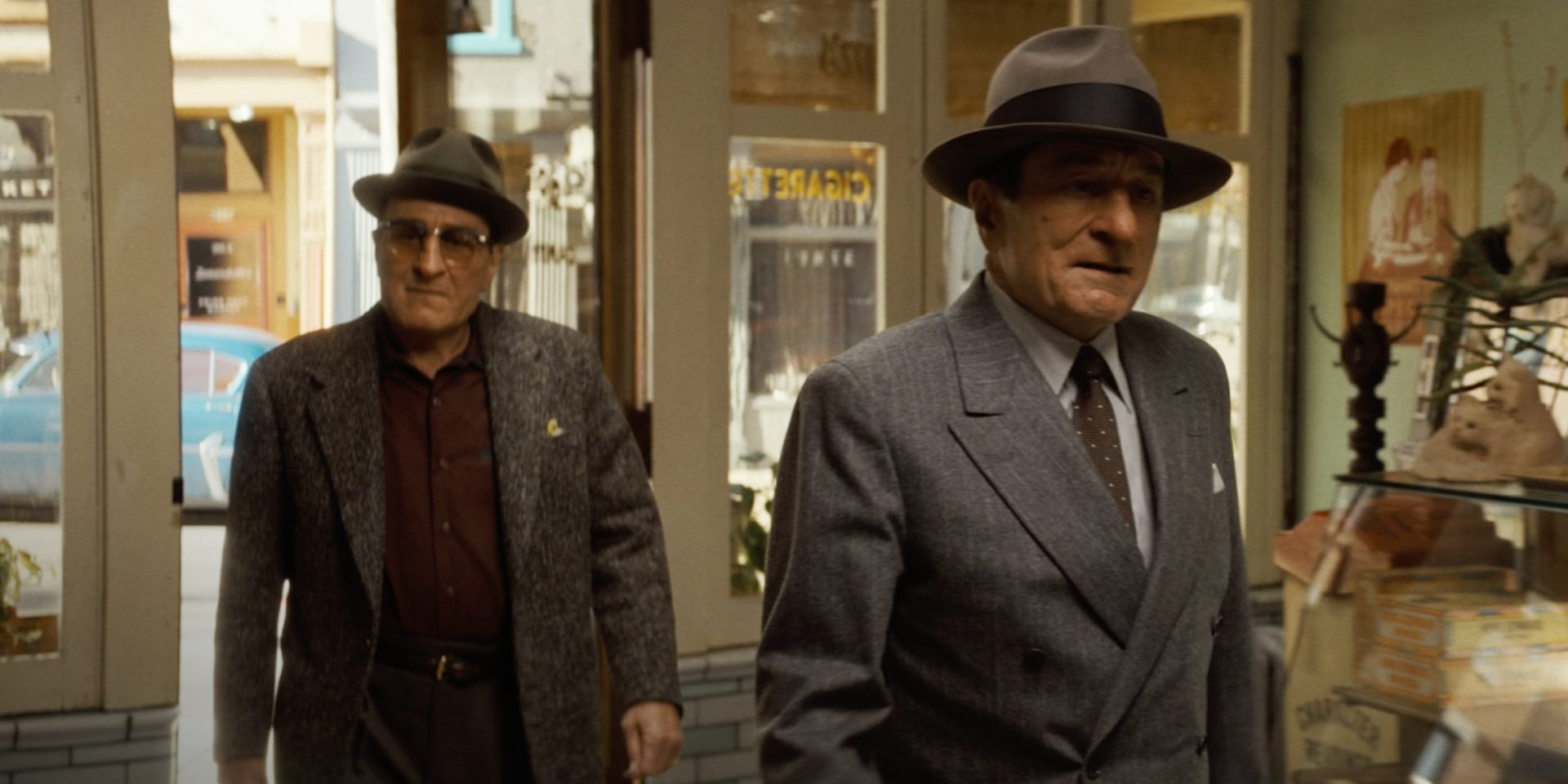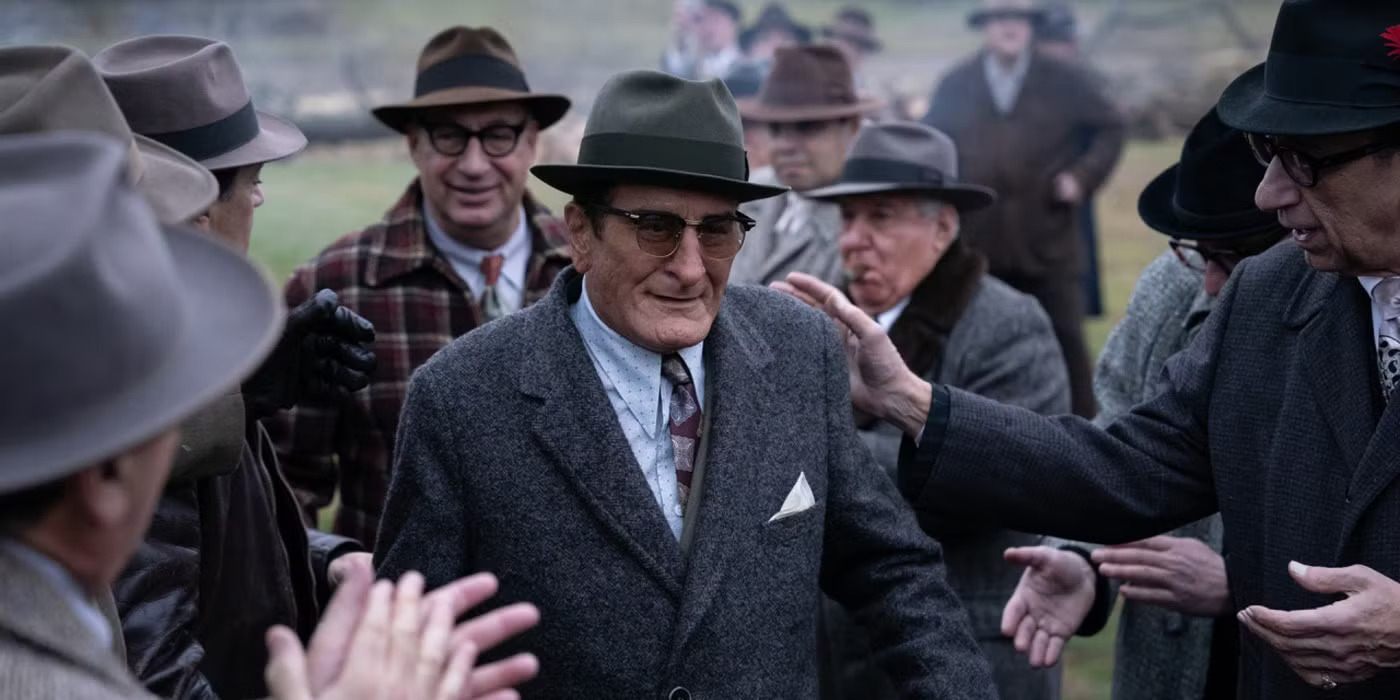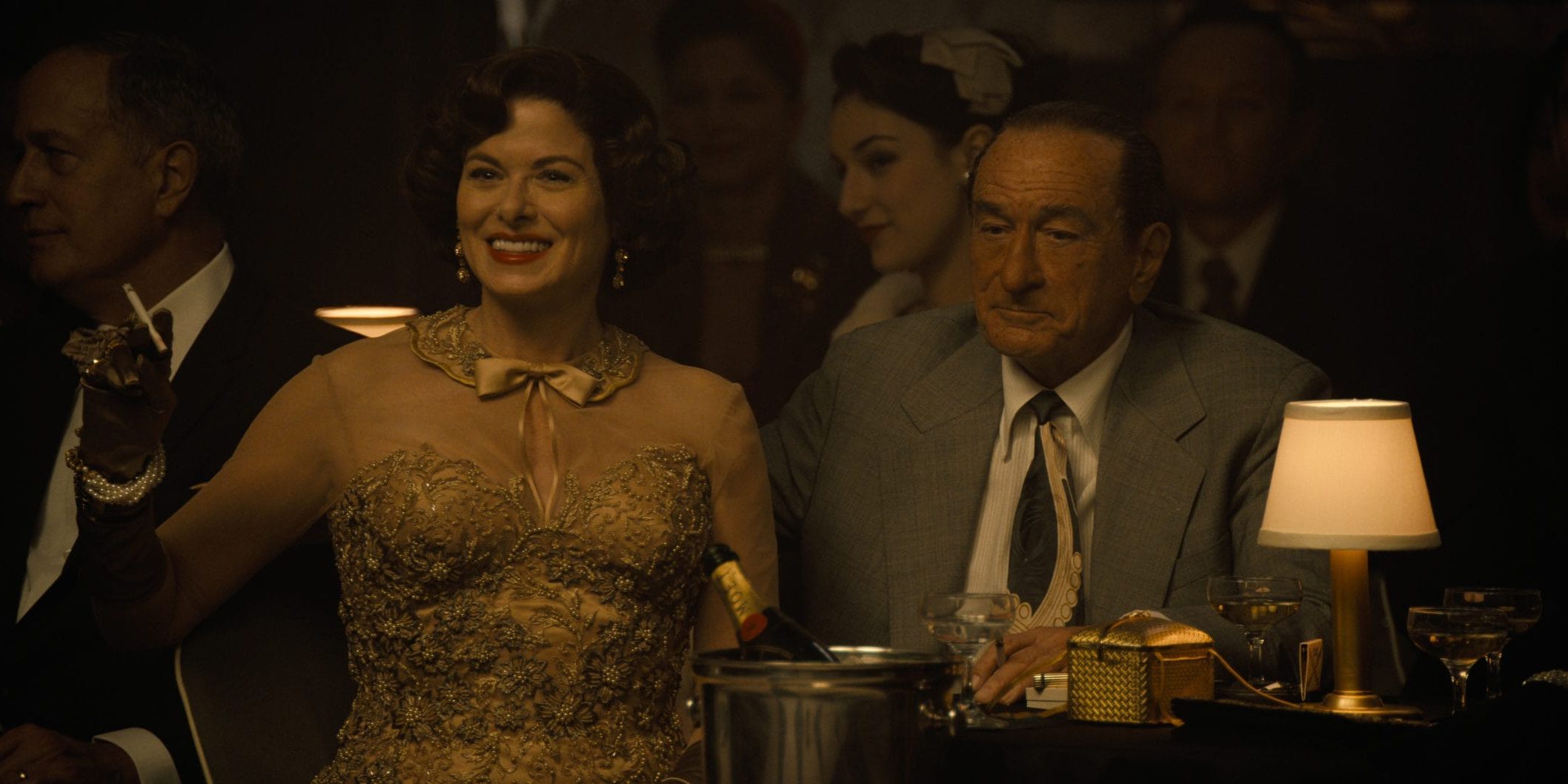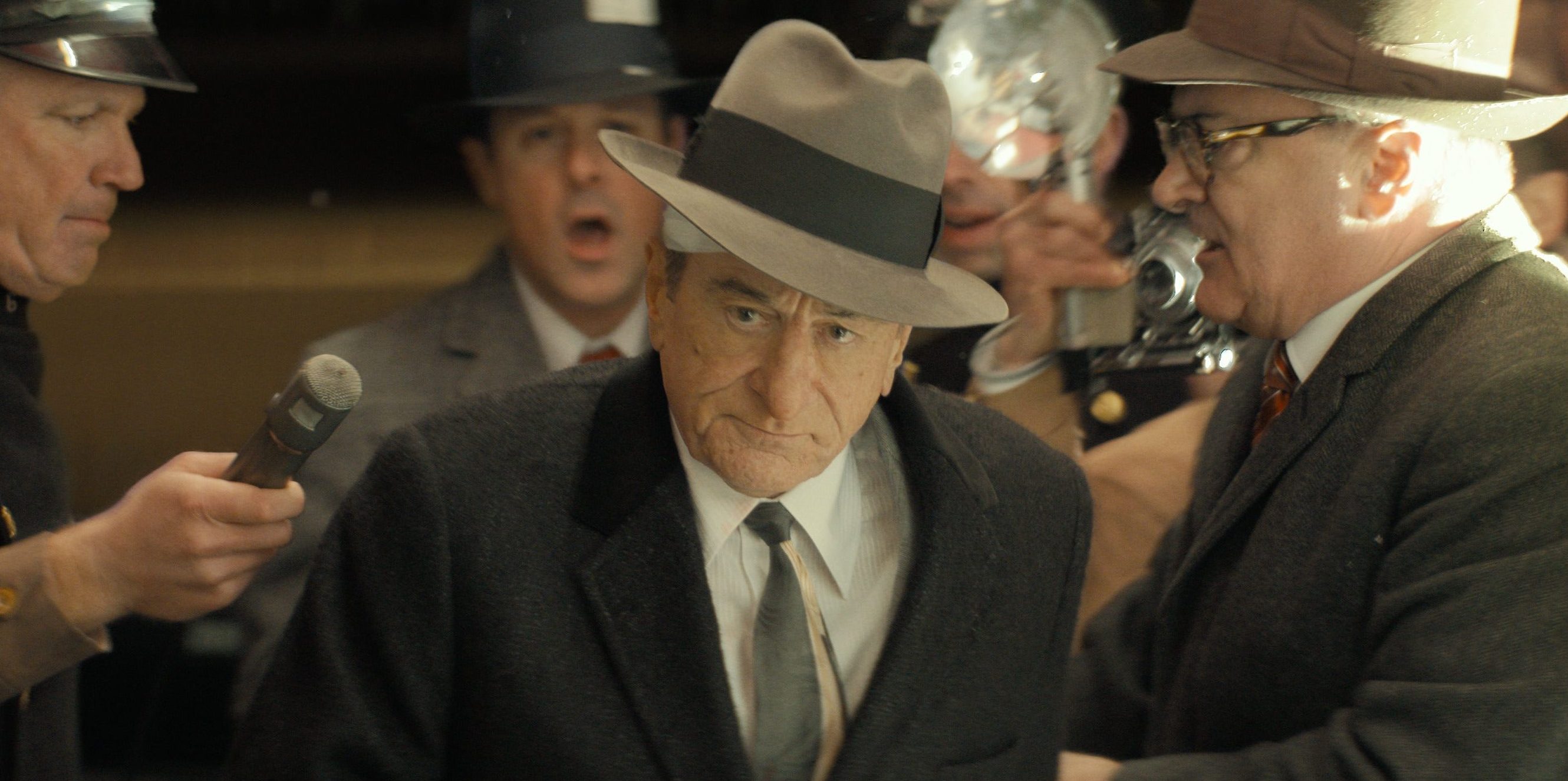At the end of ‘The Alto Knights, ‘ Frank finds himself worn out after a long string of deceits and deceptions. The mafia empire that he had once built brick by brick is on the brink of crumbling; his attempts to maintain peace and balance are only met with accelerated violence. Realizing that his rival will stop at nothing, the seasoned veteran of the game steels himself for an endgame that will shake the nation to its core. Starring Robert DeNiro in a dual role as the real-life Mob Bosses Frank Costello and Vito Genovese, who in the 1950s held control of the entire mafia syndicate, this biographical crime drama finely weaves history and emotion together, cautioning the audience about the cost of ambition. SPOILERS AHEAD.
The Alto Knights Plot Synopsis
Frank Costello, the Capo Dei Capi, or Boss of all Bosses in the crime syndicate, survives an assassination attempt orchestrated by his once best friend, underboss Vito Genovese. Given the ambitious temperament of his rival, Frank wisely decides to retire and end the string of bloodshed and betrayal before it ensues in full. He promises his wife a vacation around the world after his transfer of power is over. However, a paranoid Vito expects subtle tricks and betrayal and chooses to escalate things, forcing them to his will. The poison spreads deep into the Mafia, causing rapid distrust and aggression.

The story plays with time, showcasing the events that build up to their eventual clash. The two central characters share a history disrupted by special circumstances. When the time to reunite comes, however, they find that the world around them has changed, birthing irreconcilable differences, both in attitude and actions. While Frank navigates his married life with Bobby, Vito finds a new romantic interest in the form of Anna. His insecurity complex, however, keeps striking, causing him to lash out at her ex-husband, prompting a lawsuit that threatens to bring the entire order down. With Frank’s name embroiled in the chaos, sparks are ignited, and allegiances are questioned.
A series of congressional hearings generates tensions in the underworld, culminating in the death of one of Frank’s most trusted allies, Albert Anastasia. This confirms the gravity of the situation and forces him to swallow his past relationships and take a stance. An elaborate strategy follows, threatening to break the very code of revenge that the Mobs live by. With the noose of government investigations tightening in the background, the two central characters anticipate a head-on collision; the future of the Mafia hangs in the balance.
The Alto Knights Ending: Does Frank Take Down Vito? How?
After surviving the assassination attempt, Frank finally accepts the gravity of the situation and decides to put an end to this conflict once and for all. Unlike Vito, he does not go for a direct assassination attempt, which does not align with his values. Instead, he urges for peace and chooses to volunteer for retirement, thus avoiding both scrutiny from the mafioso and the public, and the guilt that would come with hurting his friend. His efforts involve multiple stages. The first step is to let Vincent walk free by refusing to recognize him as the culprit. This act helped him reestablish stability in the Mafia.

Frank’s actions are met with mixed reactions. At the same time, the five bosses are pleased to let the two mavericks handle their differences amicably; some, like Albert Anastasia, another underboss, communicate their anxiety about accepting such behavior, as it threatens the mafia code of conduct. Frank asks him to relocate to Cuba for some time, reassuring him of his decision, claiming it would protect him from the incoming chaos due to investigations into the drug business. While this act is interpreted simultaneously as him clearing the way for succession, Vito smells trouble and assassinates Albert as a precaution. With one of his significant assets gone, Frank now concocts a new plan to bring down his rival for good.
The trap is set in the form of an official meeting at Joseph Barbara’s house, which would go on to gain notoriety as the Apalachin Meeting. He calls for the gathering of all Mob bosses for his retirement party, ensuring the presence of Vito himself, who is hungry for official recognition of his control. Unbeknownst to them. However, Frank has secretly tipped off the local police, claiming that the location of their meeting was soon to be the den of a smuggling operation. This immediately garners the police’s attention, who, upon sending their officer, find a congregation of many wealthy people from all over the country, as indicated by their license plates. This solidifies their suspicion, and an official raid is conducted, which leads to the identification of every present leader.

Frank, on the other hand, manages to survive the raid by carefully timing his journey to Apalachin. When that isn’t enough, he deliberately attempts to delay his arrival by stopping for coffee and leisurely purchasing apples. Meanwhile, the mob bosses are caught off guard and are helpless in the face of police intervention, as their cars get stuck in wet mud. Those who cannot drive away attempt to run through the forest but are quickly caught and interrogated. Arriving in the middle of the raid, Frank promptly orders his driver to keep going, successfully avoiding blame. In the events to follow, the mafia underworld is forced to the surface, with the FBI confirming that they were conducting organized crime nationwide. An aggressive campaign against them is launched, ensuring that the already vulnerable Vito is caught and sentenced to 16 years in prison, a tragic end to their decades-long friendship.
Why Does Vito Want to Kill Frank?
At the beginning of the movie, Frank narrates that, at one point, he and Vito share a brotherly bond of friendship. They had grown up together and quit school at a young age because of their ambitions. As time passed, however, their differences began to stand out more clearly: Vito is a selfish businessman who prefers wealth and power over all else, in sharp contrast to his old partner, who strives for stability and longevity. While both engage in criminal business, their manners and sensibilities are night and day. These differences eventually hit critical mass, with Vito ordering a hit on his old friend, perceiving him as a competitor instead of a partner. He fears that his supremacy will always be endangered as long as Frank lives.

The rivalry between the two best friends is rooted in the events following his original escape from the country. Having succeeded Lucky Luciano in 1937, Vito had reigned as the Boss of the syndicate before being incriminated for a double homicide. To avoid the Grand Jury, he handed over his business and title to Frank, who by now had a flourishing underground liquor business, before fleeing to Italy. However, what began as a temporary act of trust gradually devolved into a long-term arrangement with the onset of World War II, making it impossible for Vito to move out. By the time he returned, everyone had grown comfortable with Frank’s leadership, and Vito found himself forcing his way into a drastically changed world.
During Vito’s trial against his wife, Anna, many secrets about his illegal operations are revealed. One of the many names mentioned in her statement is Frank, his best friend and advisor. This registers as a significant blow, as his criminal identity and leadership model are built around staying out of the government’s sight. With widespread public attention on all of them, the Mob bosses employ a united strategy of pleading the Fifth to all allegations. Frank, however, has a different perspective, believing that those who plead the Fifth appear guilty. His plan to accept his bootlegging past and deny everything else backfires as the media hounds him over his gambling legacy. Vito, now believing that Frank is no longer his ally, only acting in his self-interest, decides to commission the hit, kicking off a series of events that cause his downfall.
What Happens to Frank and Vito After the Feud?
In the aftermath of Vito’s arrest, media attention piles on, putting pressure on the government to bring in more and more people affiliated with him and convict them of their crimes. One after the other, mavericks like Joseph Colombo and Tony Bender are promptly arrested, and Vincent is declared the new Boss. With its inner workings exposed and its top leaders arrested, the Mafia quickly deteriorated. Frank says that at the time of his narration, their syndicate is all but over, with a mere wonderment left about how it came to be in the first place. Vito is sent to the Atlanta Prison, dying in 1969, in the Springfield, Missouri Federal Hospital. Frank, on the other hand, dies peacefully in 1973, in the New York Doctors Hospital, with his wife by his side.

As it turns out, Frank has a markedly different life trajectory following the investigation. He expresses that he was careful not to leave any proof of his involvement in the mafia operations and finally decided to settle in peace with no one left to threaten him and his family. He gets into breeding roses, winning a prize in a horticulture competition. He admires how this life liberates him from his ties to the past, as even if anyone recognizes him or his period of infamy, they do not care. Frank’s gambling crisis eventually catches up with him in the form of the IRS, who book him for tax evasion and lead to his brief stint in the Atlanta Prison. Here, he is reunited with his oldest friend turned greatest rival.
Due to their proximity to the prison, the warden, fearing bad blood, asks the two to sit down in the same cell and talk peacefully. While this is purely an exercise in appearance, their final dialogue provided depth to their conclusions. Vito knew that Frank was the reason for his downfall but had accepted it as reality, as it was too late to change anything. With their enmity behind them, the two men now reflected on their past, their shared childhood, and the paths they had taken. The contrast in their presence silently underscores this conversation.

Vito led a life of hunger, escape, and paranoia. Power was always snatched away from him right when he was at its cusp, leading to his inferiority complex towards Frank, who had a seeming Midas’s touch over every one of his businesses. While their ideologies differed from the get-go, they stayed together because of a strong bond and mutual trust. With that trust now betrayed by both, only a superficial reminiscence exists. The final monologue of the movie talks of their shared struggle, how, in a land bereft of its natural resources, the two friends had to construct their own future from scratch. Yet in the final scene, only Frank walks free, with a lifetime of memories to parse through.
Read More: Are the Harrigans and Stevensons Based on Real Crime Families?


